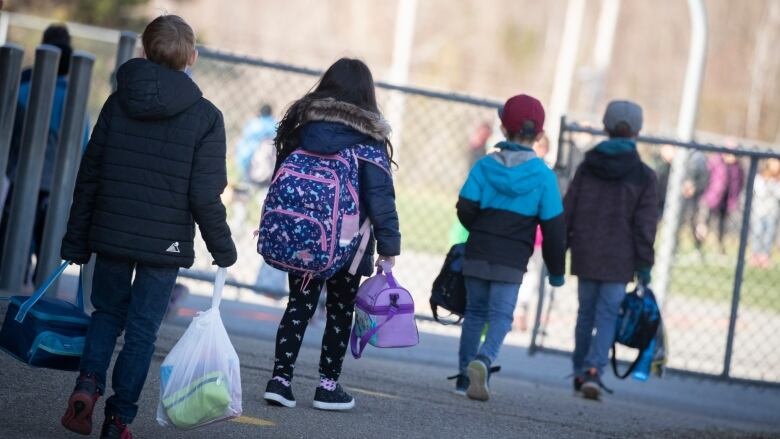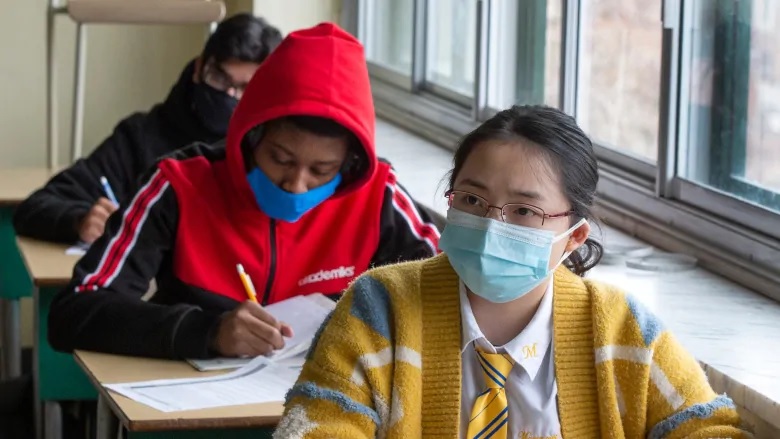A new survey suggests many Canadians feel the COVID-19 pandemic will have negative long-term impacts on children’s education.
The survey, by the Canadian Hub for Applied and Social Research at the University of Saskatchewan, found that despite 63 per cent of the 1,000 people polled by phone saying they believed the virus will have positive changes on the delivery of online education, 54 per cent thought it would be bad for children’s learning.
“I do think there’s a bit of concern around — are the students who are either K-12 or post-secondary, are they going to be behind where they could be or should be, at this point in their educational careers?” said Jason Disano, the director of the Canadian Hub for Applied and Social Research, which was launched last September.
Despite the worries about children’s education, Disano’s survey found that Canadians are feeling more optimistic about the future, according to the Canadian Press’s Stephanie Taylor in a story published today.
“Given that vaccinations are now starting to roll out … people are starting to see the light at the end of the tunnel,” Disano said.

Elementary school students are pictured in Montreal last spring. (Radio-Canada/Ivanoh Demers)
“It seems like a great opportunity to really get a sense of how people are feeling in terms of what life may or may not look like post-COVID.”
About 72 per cent of respondents predicted COVID-19 would have a negative effect on mental health and well-being compared to 18 per cent who felt it would be positive.
As well, more than 60 per cent of respondents were pessimistic about how the pandemic will affect the economy and international travel, while 52 per cent said it would be bad for personal finances.
On the brighter side, Disano told Taylor, 61 per cent of respondents thought COVID-19 would be good for the willingness of people to wear masks in public after the pandemic.
“I would assume people, when they were responding to this question, were thinking about things like the influenza virus,” Disano said.
“Perhaps masking may become not necessarily widespread, but perhaps more common.”

Secondary students are pictured in Ottawa on Feb.1. (THE CANADIAN PRESS/Ryan Remiorz)
The survey found that 76 per cent of respondents felt the pandemic would be positive for online shopping, and 72 per cent reported the same for alternative workplace arrangements.
Opinions on other topics were more mixed, Taylor reported.
About 37 per cent of people thought there will be both good and bad changes to domestic travel because of the virus, while 23 per cent said they didn’t know.
Overall, Disano said, the research indicates people feel differently about how the pandemic will impact their lives, and there’s a lot of uncertainty about what communities will look like once they are no longer threatened by the virus.
“I think there’s going to be a degree of onus on policy-makers, on politicians, on public-health officials to provide more information to Canadians in terms of what they see post-pandemic Canada looking like,” Disano said.
With files from The Canadian Press (Stephanie Taylor)







For reasons beyond our control, and for an undetermined period of time, our comment section is now closed. However, our social networks remain open to your contributions.